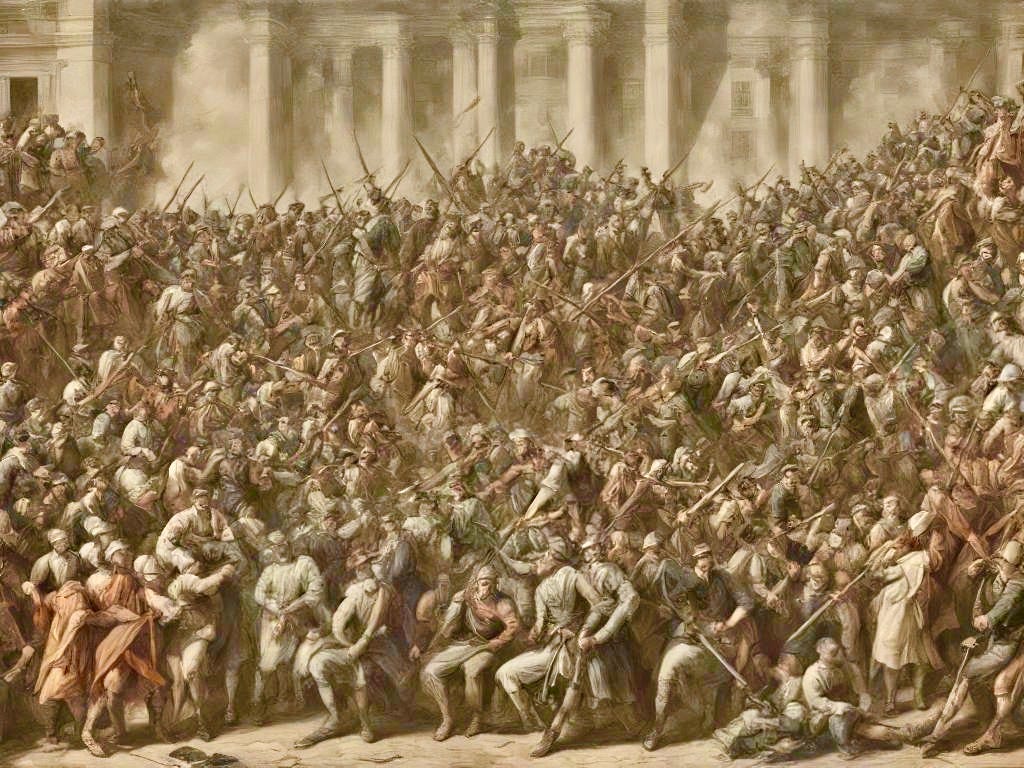When Empires Divide: The Historical Pattern of Civil Strife
From Ancient Greece to Modern America, the Threat of Centralized Power and Political Polarization
At VaxxFacts.info, we delve into the historical cycles that shape our present and future. Martin Armstrong's recent article provides a compelling analysis of how empires divide, exploring whether the United States might follow the path of civil unrest or peaceable separation.
Understanding the Division: Echoes of the Past
Will America's current polarization result in a civil war… or can it experience a peaceful division akin to the fall of Russia?
This question looms large as cultural and political tensions escalate. From Dunkin’ Donuts' controversial decision to distance itself from certain social media platforms to broader societal rifts, America’s polarization is palpable.
History has a way of repeating itself, largely due to unchanged human nature.
Whether it's the English Civil War over religious control or the Roman Republic's push against monarchy, centralized power inevitably breeds conflict. The rise and fall of ancient empires like Greece and Rome offer vital lessons as we navigate these unprecedented times.
The American Civil War: A Case Study in Economic and Social Tensions
The U.S. Civil War stemmed from profound economic disparities and ethical considerations surrounding slavery. Unlike serfdom, slavery in the South was a critical economic pillar, making the transition to a wage-based system daunting yet not insurmountable. The South feared economic collapse with the end of slavery, however, a thoughtful economic analysis might have facilitated a smoother transition.
Political Power and the Risk of Tyranny
Today, the U.S. faces a similar threat from centralized federal power that prioritizes overarching control over localized governance. This model has historically led to tyrannical rulers and endless revolutions, as seen in the Roman and Greek empires.
A decentralized approach, akin to the early Roman Republic, might foster more harmonious relations within diverse local communities.
Lessons from Ukraine and Historical Precedents
The current situation in Ukraine, under the authoritarian policies of Zelenskyy, echoes the pitfalls of excessive centralized power. His suppression of cultural and religious freedoms exemplifies how dictatorial decrees can lead to widespread unrest and conflict.
Historical parallels include the tyranny of Roman Emperor Elagabalus and the religious fanaticism he imposed, which ultimately led to his violent downfall.
The Cycle of Revolution
History underscores the critical concept that federalized governments should focus on relationships between nation-states, while local governments should handle domestic policies affecting culture. This approach has historically curbed the cycle of revolution, as evidenced by Rome's initial decentralized governance model.
As we reflect on these historical patterns, it's evident America's future might be shaped by its ability to balance centralized power with localized autonomy.
The lessons from history are clear: the concentration of power ignites conflict, yet embracing decentralized governance might pave the way for peace and stability.
Editor’s Note: I’m NOT an optimist things will turn out OK somehow… we are too far up shit’s creek.







Yes, Samuel, we are up shit's creek, and without a paddle - heading toward the falls...God save us!